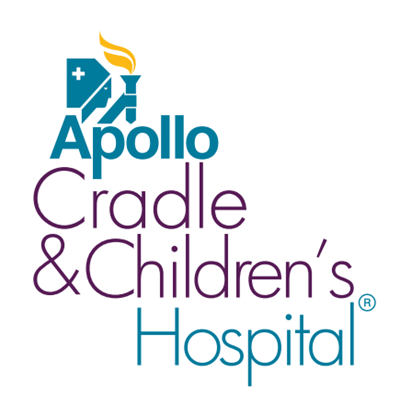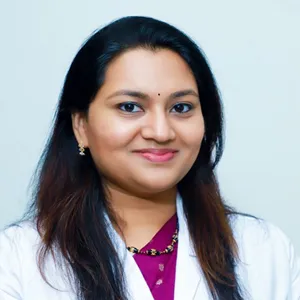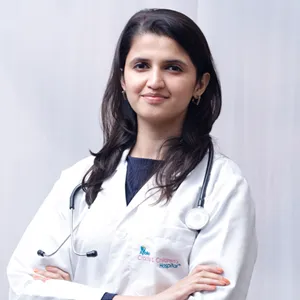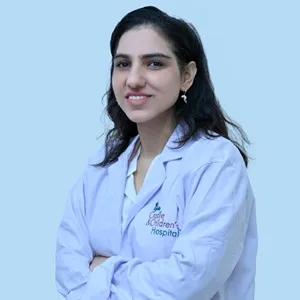Congratulations! You’ve just taken a pregnancy test, and the result is positive! This is a joyful and exciting time for you and your family, full of hope and excitement. As you start planning for your baby's arrival, it's also important to make sure both you and your baby get the best care throughout your pregnancy. That’s where fetal medicine comes in.
Fetal medicine is a special area of medicine that focuses on your baby’s health during pregnancy. It helps detect and manage potential problems or conditions affecting your baby before birth.
Let’s learn what fetal medicine is and how it helps during pregnancy.
What is Fetal Medicine?
Fetal Medicine, also called maternal-fetal medicine (MFM) or perinatology, is a branch of medicine that focuses on the health and care of the unborn baby (fetus) during pregnancy. It involves diagnosing and treating problems or conditions affecting the baby before birth. This field differs from regular obstetrics, which focuses on the mother's health because it focuses specifically on the baby inside the womb.
Fetal medicine specialists are doctors, usually obstetricians, with extra training to care for the baby’s health. They use advanced technology, like ultrasound, to closely monitor the baby and detect any potential issues early. This helps ensure the baby gets the right care and treatment and helps parents plan for a healthy delivery.
In addition to diagnosing physical health problems, maternal and fetal medicine also works with genetic experts to help families worried about genetic conditions in their babies.
In short, fetal medicine focuses on giving the best care to the baby before birth.
Why is Maternal-Fetal Medicine Important?
- Comprehensive Care for Both Mother and Baby:
Maternal-fetal medicine focuses on providing specialised care for the mother and the unborn baby throughout the pregnancy, ensuring their health needs are met.
- Early Detection of Problems:
Specialists use advanced technology to find any problems with the baby early in pregnancy. This helps them act quickly to treat or manage issues before they get worse.
- Improves Pregnancy Outcomes:
By identifying complications early and managing them effectively, maternal and fetal medicine specialists improve the chances of a healthy pregnancy and a safe delivery for both the mother and the baby.
- Reduces Risks of Serious Complications:
Maternal-fetal medicine helps reduce the risk of severe complications like stillbirth, preterm birth, or birth defects by closely monitoring the baby’s health and taking steps to address any issues that arise.
- Better Care for High-Risk Pregnancies:
Fetal medicine is especially important for pregnancies that are considered high-risk, such as those involving medical conditions, multiple pregnancies, or a history of complications. It ensures these pregnancies are carefully monitored and managed to reduce risks for both the mother and baby.
Key Services Offered in Fetal Medicine
Fetal medicine provides a range of essential services to monitor and support the health of both the mother and the baby throughout pregnancy. These services include:
- Pre-pregnancy counselling and genetic consultation to help plan a healthy pregnancy.
- Nuchal Translucency (NT) Scan between 11 to 14 weeks to check for any early signs of abnormalities.
- Pre-eclampsia screening to detect the risk of high blood pressure-related complications.
- Cervical length assessment at various stages of pregnancy, as needed, to monitor the risk of preterm labour.
- Early anomaly scan between 16 to 18 weeks, where relevant, to detect any early fetal abnormalities.
- Fetal anomaly scan between 18 to 22 weeks to screen for physical birth defects.
- Fetal echocardiography scan to check the baby’s heart health.
- Fetal well-being scans using fetal doppler to assess the baby’s growth and overall condition.
- Ultrasound-guided invasive procedures like amniocentesis, chorionic villous biopsy, and fetal blood sugar sampling for accurate diagnosis and therapy.
- Identifying and monitoring fetal growth problems to ensure the baby is growing properly.
- Surveillance and monitoring of twin pregnancies to manage the unique challenges of carrying multiples.
Key Fetal Medicine Screening Tests
Maternal-fetal medicine focuses on identifying and addressing potential health problems in the fetus. It uses advanced tests and techniques to help parents manage pregnancies, particularly if there is a family history of genetic conditions. In some cases, abnormalities detected can even be treated before birth, giving parents the chance to make informed decisions without feeling pressured into a medical termination.
Fetal medicine commonly screens for conditions such as:
- Down’s syndrome
- Other chromosomal disorders, like Edwards syndrome, Patau syndrome, and Di-George syndrome
- Structural problems, such as open spina bifida, limb and skeletal abnormalities, and bladder obstructions
These screenings and treatments ensure the best outcomes for the baby and the parents.
Ultrasound Imaging
Ultrasound imaging is a key tool in fetal medicine that uses high-frequency sound waves to create detailed pictures of the baby inside the womb. These images help doctors:
- Monitor the baby’s growth
- Check for potential health issues
- Assess overall well-being
Advanced techniques like 3D and 4D ultrasounds provide clearer, more detailed images, making it easier to identify complex conditions. This technology plays a vital role in ensuring the mother and baby receive the best possible care during pregnancy.
Genetic Testing
Genetic testing examines the baby’s DNA to detect genetic conditions or chromosomal abnormalities. Common methods include:
- Non-invasive prenatal testing (NIPT) : A simple blood test to screen for conditions like Down’s syndrome and other chromosomal issues
- Invasive diagnostic procedures : Such as amniocentesis and chorionic villus sampling (CVS), which collect samples from the womb for more detailed testing
These tests provide crucial information to help doctors plan treatments and support parents in preparing for their baby’s health needs.
When Should You Visit a Maternal-Fetal Medicine Specialist?
You should consider visiting a maternal-fetal medicine specialist if:
- You have a pre-existing medical condition, such as diabetes, high blood pressure, or heart disease, that could affect your pregnancy.
- You are experiencing complications during pregnancy, like preterm labour, abnormal fetal growth, or preeclampsia.
- There is a history of genetic disorders or birth defects in your family, and you want specialised care.
- You are carrying multiple pregnancies, which may require closer monitoring.
- Your obstetrician refers you for specialised testing or monitoring due to identified risks.
The Bottom Line
Fetal medicine has become a specialised field, separate from obstetrics and gynaecology. It recognises that the fetus, or unborn child, should be treated as an individual with specific health needs, separate from the mother. Maternal and fetal medicine focuses on addressing these unique health concerns. Specialists in this field are primarily obstetricians with extra training in diagnosing and managing problems affecting the unborn child.
At Apollo Cradle Fetal Medicine Centre, we take pride in our team of highly skilled specialists, trained by leading experts in India and around the world. With years of experience, they bring exceptional knowledge and expertise to our centre. Our advanced ultrasound machines allow for highly accurate and detailed scans, ensuring patient safety is always our top priority.
A key strength of our centre is the support of India’s top neonatal and paediatric team. This enables us to provide pre-birth planning during pregnancy when needed. We also have a team of renowned geneticists who offer guidance and support to couples with a history of genetic conditions or concerns, helping them plan for a healthy pregnancy and baby.
For more information or to book an appointment, call Apollo Cradle & Children’s Hospital at 1860-500-4424.
We are here to connect you with the best paediatricians, obstetricians, and gynaecologist specialists who are ready to assist you and provide expert care for all your needs.
Request an appointment at Apollo Cradle, Call 1860-500-4424 to book an appointment.
Maternal-fetal medicine is a specialised area of healthcare that focuses on managing high-risk pregnancies, diagnosing conditions that may affect the baby, and providing care for both the mother and unborn child to ensure a healthy pregnancy and delivery.
Common tests include ultrasound scans, genetic testing (such as NIPT), amniocentesis, and chorionic villus sampling, all of which help monitor and diagnose potential issues with the fetus.
A fetal anomaly scan is a detailed ultrasound performed typically between 18-22 weeks of pregnancy (second trimester) to check for structural defects or abnormalities in the developing fetus. To learn more, search for "maternal-fetal medicine centre near me" or visit your nearest Apollo Cradle centre.

 94% Patient Satisfaction Score
94% Patient Satisfaction Score
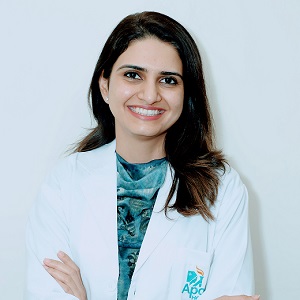
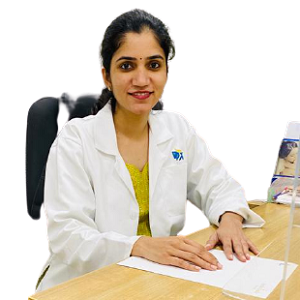

.webp)
.webp)

